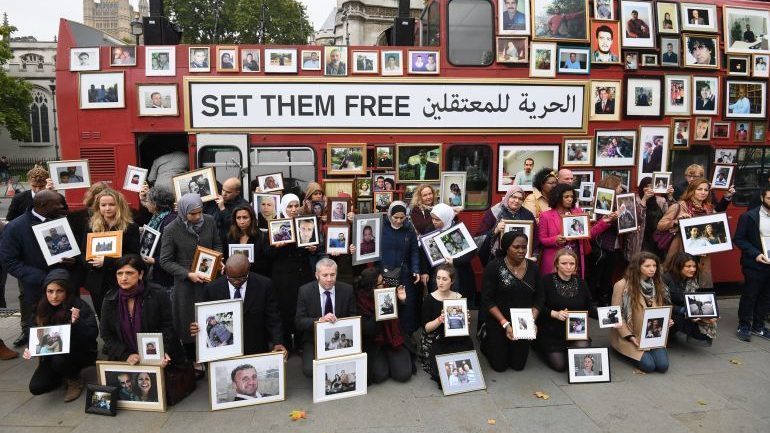Hassan al-Ahmad, whose brother disappeared in Homs in 2014, is hopeful about the recent international decision to establish an UN-affiliated institution dedicated to missing persons in Syria. He hopes that this institution will provide information about his missing brother. In an interview, Hassan shared his long struggle to find his brother, exhausting all his resources and seeking help from various sources. He believes the new UN institution may finally help him locate his brother.
On the other hand, Tamer al-Hajji, whose father went missing in 2018, has no hope for the UN resolution. He believes that international organizations and resolutions cannot stop the regime’s actions. Tamer has surrendered his father’s fate to a higher power, stating that the new decision will have no impact without an enforcement mechanism.
Syrian Media Union Condemns HTS Attacks on Journalists in Idleb
According to international law expert Abdel Nasser Hoshan, the UN mechanism for identifying missing persons is humanitarian in nature and lacks criminal jurisdiction to determine responsibility for crimes. The mechanism requires the regime’s approval to initiate its work, which the regime has previously refused to cooperate with or recognize.
Hoshan emphasizes that UN resolutions outside the context of Chapter VII are not coercive. The recent resolution establishes the “Independent Institution for Missing Persons in Syria” to uncover the fate of over 100,000 missing individuals since the start of the Syrian revolution in 2011.
The draft resolution was co-authored by several countries, with most Western countries and Qatar and Kuwait supporting it. Thirteen countries abstained from voting, including Lebanon, Iraq, Egypt, Saudi Arabia, and others. China, Russia, North Korea, Cuba, Iran, and others rejected the resolution.
The establishment of the institution has been described as a “historic” decision by the Independent International Commission of Inquiry on Syria.
Commission Chair Paulo Pinheiro expressed relief on behalf of the international community regarding the establishment of the special mechanism for missing persons in Syria. He emphasized that families had been left to search for their loved ones alone for too long and that this institution is a necessary humanitarian measure that complements accountability efforts.
Bassam al-Ahmad, director of the Syrians Organization for Truth and Justice, welcomed the decision as a precedent in the UN General Assembly, recognizing its potential long-term impact. He acknowledged that the mechanism would require time to gather staff, compile data, and establish communication with all parties involved in the conflict.
In his interview with Baladi News, al-Ahmad stressed the importance of creating a unified database for all missing persons, involving all parties in Syria, including the regime and other factions. He clarified that the institution would not have binding authority over the regime or the opposition. The resolution calls for cooperation from all parties and organizations to collect information and subsequently exert pressure to reveal the fate of the missing.
Previous UN mechanisms and decisions regarding Syria have received limited response and cooperation from the regime. The lack of binding measures or enforcement has hindered accountability, such as in the case of investigations into chemical attacks in Douma. Human rights activist Ali Al-Ali highlighted the tendency of UN resolutions to remain unimplemented, often lacking the necessary mechanisms to hold the Assad regime and Russia accountable, as seen in the disrupted sessions of the Constitutional Committee.
This article was translated and edited by The Syrian Observer. The Syrian Observer has not verified the content of this story. Responsibility for the information and views set out in this article lies entirely with the author.


